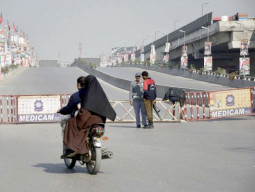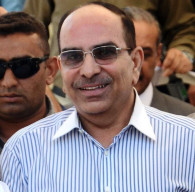
The parliament, political parties, Election Commission of Pakistan (ECP), and civil society must join forces to enhance the participation of women as voters and candidates in electoral processes.
The consensus emerged during the launch of the Free and Fair Election Network (FAFEN) report, Women in Elections, analysing women's participation in the 2024 General Elections (GE-2024).
The event, held as part of FAFEN's International Human Rights Day celebrations and the culmination of 16 days of activism against gender-based violence, brought together sitting and former women parliamentarians belonging to PML-N, PPP, JI, JUI-F and Qaumi Watan Party along with political parties' representatives, civil society, election experts, and journalists.
The participants stressed the need for comprehensive electoral reforms before the next general elections to enhance women's participation as voters and candidates.
They also highlighted the importance of promoting intra-party democracy to ensure women's meaningful and equitable involvement in political processes.
Speaking at the event, FAFEN national council member Anbreen Ajaib stressed the urgency of electoral reforms to ensure gender parity. She described the narrowing gender deficit as a promising step but emphasised that much work remains to achieve equitable representation for women in the political sphere.
Kanwal Mehmood of FAFEN presented the report's findings, highlighting a significant rise in women's participation as voters, polling staff, and candidates.
She revealed that women cast 24.4 million of the 58.9 million total votes in GE-2024, marking an increase of 2.7 million compared to GE-2018.
The growth is nearly double the increase observed in votes cast by men, which rose by 1.6 million.
Similarly, the number of female candidates contesting GE-2024 nearly doubled compared to GE-2018, largely driven by a notable surge in independent female candidates. The report stressed prioritising women voter registration in constituencies where the gender gap in electoral rolls still exceeds 10 per cent while advocating for a reduced threshold of 5 per cent in constituencies where the gap has already fallen below 10 per cent.
To improve women's voter turnout, the report suggests considering legal amendments to enforce the existing minimum requirement of 10 per cent female turnout at the polling station level.
In extreme cases, where low turnout at certain polling stations could significantly impact the election outcome, it recommends empowering the ECP to call for a re-poll in those areas where the number of registered voters at such stations exceeds the margin of victory.





1736599343-0/fizza-(8)1736599343-0-165x106.webp)






1736508423-0/Express-Tribune---News-Desk-(9)1736508423-0-270x192.webp)


1736495887-0/sidra--(63)1736495887-0-270x192.webp)








COMMENTS
Comments are moderated and generally will be posted if they are on-topic and not abusive.
For more information, please see our Comments FAQ